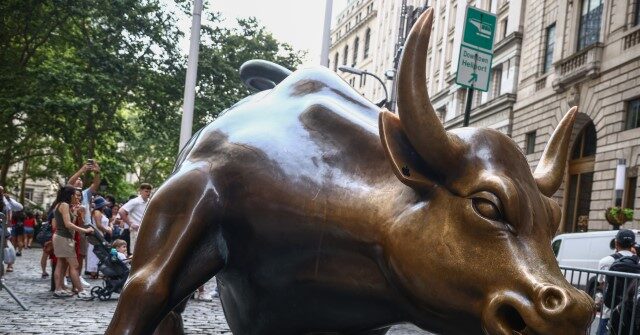A recent interview with billionaire investor Stanley Druckenmiller highlighted a strong belief in the stock market regarding the outcome of the upcoming presidential election in November. During a broadcast on Bloomberg Television dated October 16, Druckenmiller expressed that the market appears to be favoring a victory for former President Donald Trump. He mentioned that within the past week and a half, market indicators and trends, such as bank stocks and the crypto market, have shown a considerable confidence that Trump will win. This sentiment reflects a broader perspective that industries benefiting from deregulation are likely to perform better under a Trump administration compared to his opponent, Vice President Kamala Harris. Druckenmiller emphasized his opinion by indicating that if he had to make a guess, Trump seems to be the favorite based on market behaviors.
Despite his insights on the market, Druckenmiller noted that he would not be casting his ballot for either Trump or Harris in the election. At the age of 71, he has opted to potentially write in a candidate instead. His political history includes managing funds for George Soros and supporting Nikki Haley’s primary campaign against Trump, which further emphasizes his independent stance. He also commented on the anticipated political landscape, suggesting that it’s ‘extremely unlikely’ Democrats will take control of Congress even if Harris were to triumph in the presidential race. This foresight contributes to the narrative of a possible divided government if Harris wins, with implications for the stock market and economic policies.
Reacting to the stock market’s dips earlier in August, Trump utilized social media to assert that voters are faced with a choice between “Trump prosperity” or a “Kamala crash,” foreseeing dire consequences if the current administration remains in power. His comments highlighted a stark contrast in economic philosophies between himself and Harris, framing the election as a critical moment for the American economy. Trump’s claim that he has been “right about everything” further illustrates his confidence and belief in his economic policies. He attempts to rally his base by portraying the election as not just a political contest, but a referendum on economic stability.
In a related context, billionaire hedge fund manager John Paulson echoed similar sentiments regarding the potential market outcome depending on who wins the presidency. In September, he indicated a clear intention to withdraw his investments if Harris were to win, preferring to hold cash and gold instead. Paulson’s remarks underscore the anxiety among high-profile investors regarding the potential economic ramifications of a Harris administration. He articulated that the uncertainty surrounding Harris’s proposed policies could lead to significant instability in the stock market, further influencing the decisions of investors wary of economic volatility.
The underlying theme shared by both Druckenmiller and Paulson is a strong correlation between political outcomes and market performance. Their views provide insight into how investor sentiment can shape not only private investment decisions but also the overall health of the financial markets. The apparent consensus among certain investors paints a picture of a stock market that may react positively to a Trump victory while preparing for turbulence should Harris clinch the presidency. This viewpoint raises questions about the broader implications of political alignment and policy attitudes on investor behavior, indicating a trend of considerable caution and attention to the electoral process.
As the election date approaches, the interplay between politics and finance continues to capture the attention of market observers. The opinions of billionaires like Druckenmiller and Paulson highlight a growing trend where financial markets react and prepare for potential outcomes based on political predictions. This dynamic suggests that investors will be closely monitoring the election results, with expectations of significant market implications based on who secures victory in November. Accordingly, as voters head to the polls, the sentiment within financial circles appears to rest heavily on the outcomes that may define America’s economic future in the coming years.

